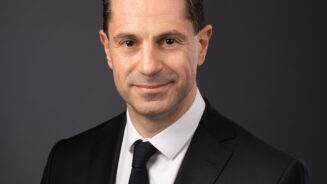In its first incarnation, which ran from 2001 for around 11 years, Acuity had three partners: Willoughby; Provisca’s Bryan Low; and Martin Barnett who was the actuary but later moved to Zurich.
It is with the full support of Low that Willoughby has brought the company back to, as he describes it, “reclaim a gap in the market that was never really filled after Acuity left”.
With his return, he will be focusing on specialised insight, analysis and strategy support for clients such as international life companies, trade associations and governmental bodies.
Listening
With a laugh, he said: “I guess, in one sense, maybe I’m not as bright as sometimes I think I am. In the beginning, when I started talking to people across the sector, I wasn’t really listening to what they were saying to me, which was that they really admired and liked what I used to do at Acuity.”
It was coming to IA’s Fund Links Forum event in London last September that “eventually clinched it”.
“I was approached by a couple of companies after that who said, ‘while you’re still having a think about what to do, can you do some freelance work?’”
Leaving Acuity the first time
“In terms of variety and working across multiple jurisdictions and sectors within the cross-border financial services, that was very satisfying for me personally, up to a point,” he said of his earlier time with Acuity.
However, it was a growing frustration with not seeing the firm’s recommendations implemented or, where they were implemented, sometimes being done poorly, that prompted him to move back into corporate life with Axa.
“I wanted the fulfilment of actually seeing my work made flesh,” Willoughby said.
“Clearly, with the LCCG takeover of the Axa offshore companies, it was quite interesting and exciting in terms of the rebrand. But that’s corporate life. One minute your face fits, the next minute it doesn’t. I’ve got no problem with that, you just move on.”
Time and distance from consultancy, however, have given him perspective, he said.
“At the time, I felt that some of the work I’d done wasn’t particularly valued. What I’ve realised as I’ve gone around talking to people in the industry over the past six, seven months is that a lot of what I did has been rather more effective than I’d originally thought.
“Looking back, I was possibly a little unrealistic in terms of the speed at which the information I was providing could be taken on board and implemented.”
The time back in corporate life has “done me no harm”, Willoughby said. “I genuinely believe that to be relevant in a consultancy role, you have to get your hands dirty, you have to be at the coalface and you have to deal with live practical issues.”
Network partners
Coming back as a smaller operation, Willoughby is acutely aware that he has finite resources. As a result, he has set up a network of partners. Among them, is Provisca.
“Rather than have the infrastructure of seven or eight staff, this time it is me acting as a gatekeeper to client relationships and focusing on the market insight and analysis. When it comes to strategy support, depending on the project and budget, I can reach out to the network partners if I need, say, an actuary or a research specialist.”
In the group are “small and big firms, actuarial firms, global brands and one or two-man specialists”.
“It will really depend on what the client wants and what level of brand endorsement they are looking for and how much they’re prepared to pay.”
For Willoughby, however, his industry background means that his network “is as good as anybody’s in this sector”.
“I’ve got a team of people that can be deployed, they have all worked with me in the past and they are all people whose work I can vouch for.”




